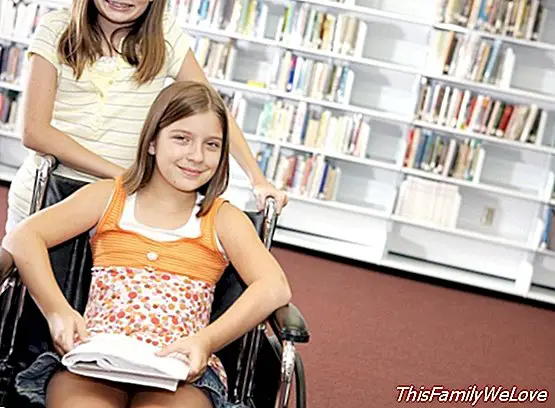Guide to end harassment in people with disabilities

Education depends on the success of the new generations overcoming problems that affect our society on a day-to-day basis. One of these issues to deal with is bullying, which is more present than what would be desired in the classrooms of several educational centers. An act of violence that often focuses on one who has symptoms that make him different from his peers.
This is the case of children with disabilities, who are often teased in schools. For this reason, from the Spanish Committee of Representatives of People with Disabilities, CERMI, a guide is offered which aims to put an end to this type of bullying in schools across the country and to grow empathy and kindness among the new generations.
Understanding diversity
The purpose of this guide is to make the new generations understand the
diversity that is present in society. Getting the little ones to understand that something different is not synonymous with something bad. For this, students must be provided with tools to interact with their peers, avoiding cases of school harassment caused by ignorance that results in rejection.
On the other hand, the educators of the child with disabilities have to make him understand that they have the same value and the same rights as the rest of his classmates. At this point it is important to highlight the role of parents in this sense since they are the ones who will spend more time with their children, moments that they can take advantage of to work on their self-esteem. At the same time, the rest of the parents must also participate in teaching for diversity.
Both the home and the school should bet on an educational model that respects the students and their capabilities. On many occasions students with disabilities do not have the possibility of having an inclusive and quality education and therefore, they have to face an education segregated and degraded. Parents and teachers should avoid these children being left out.
Tools to combat bullying
CERMI proposes a series of tools to transform the educational model into a more inclusive perspective with which to avoid bullying in children with disabilities:
- Train and educate parents and other people who care for or care for the child to understand the risks and detect signs of abuse that may be being subject.
- Ensure that parents are vigilant in choosing the people in charge of care and facilities for their children and improve their ability to detect abuse;
- Providing and encouraging the creation of support groups for parents, brothers and sisters, and other people who look after the child to help them meet their needs.
- Ensure that children and their caregivers know that they have the right to be treated with dignity and respect, and that they have the power to complain to the competent authorities if there are infractions of those rights.
- Ensure that schools adopt all measures to combat harassment in school and pay special attention to children with disabilities by offering them the necessary protection, while maintaining their inclusion in the general education system.
- Ensure that the institutions that provide care to children with disabilities are equipped with specially trained personnel, who comply with the appropriate standards, are supervised and evaluated periodically and have accessible and receptive complaint mechanisms.
- Establish an accessible complaints mechanism favorable to children and a supervisory operating system based on the Paris Principles.
- Adopt all the necessary legislative measures to punish and alienate the perpetrators of crimes and faults in the home, guaranteeing that the child is not deprived of his family and that he continues to live in a safe and healthy environment.
- Guarantee the treatment and reintegration of victims of abuse and violence, focusing especially on general recovery programs.
Damián Montero




